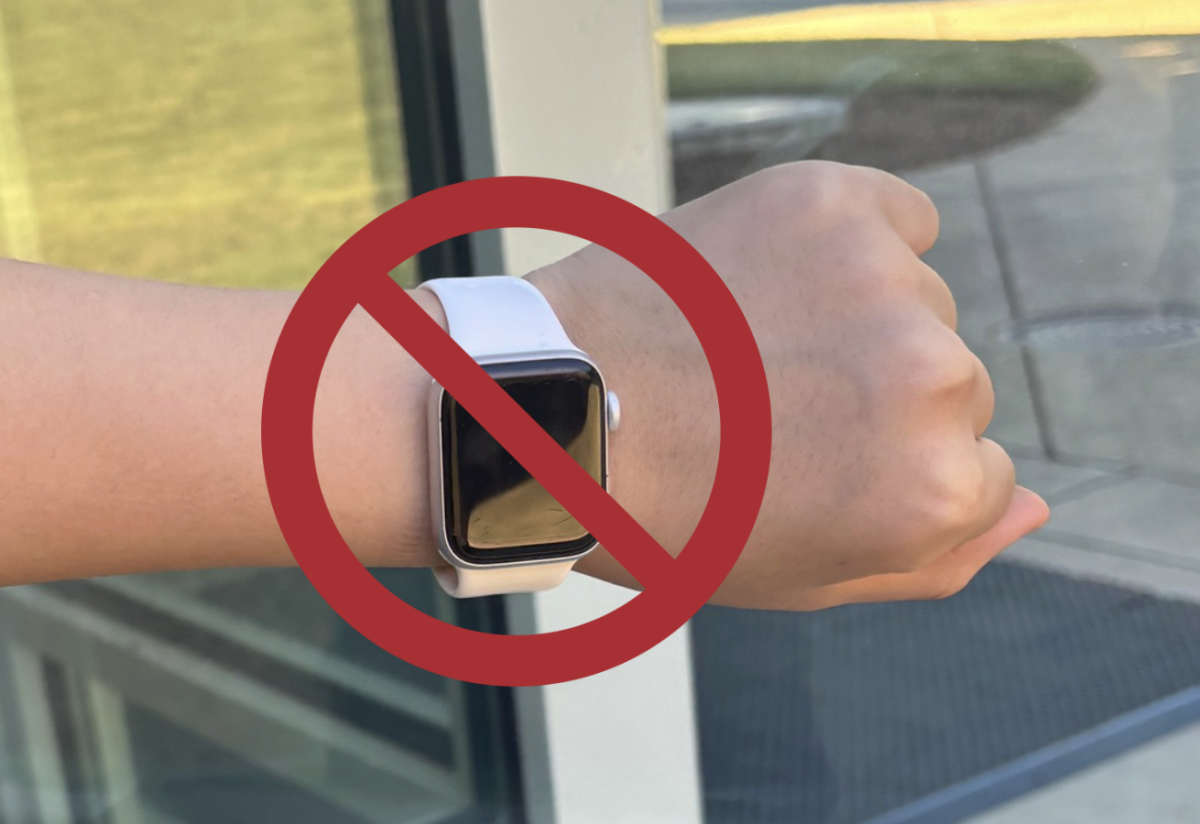This school year, smartwatches have been banned from the halls and classrooms of the Westminster Middle School. Students must now store their watches in backpacks or lockers alongside their phones when entering school buildings.
This rule builds upon last year’s Threshold Policy, which stated that phones must be stored away from sight in a backpack or locker once a student steps past any threshold while entering the school. Faculty members have pushed for the addition of smartwatches to this rule after noticing continuous use of the watches as distractions.
While the policy is new this year, it reinforces the long-standing principle that technology should not distract students. The new smartwatch rule also aims to prevent the use of wearable distractions and cheating tools.
According to the new Dean of Students, Shelly Anderson, smartwatches can perform the same functions as cell phones. “If you’re receiving text messages, you can still see and respond to them,” she says. “It’s very similar to your phone.” Smartwatches allow texting, calling, picture taking, calculations, news updates, and more.
8th grade Grade Chair Catherine Zidow recalls situations where students made it obvious that technology was being used. “I definitely had cases with 8th graders last year where teachers said that they could tell under the table students were looking at their watch,” she says. “We were never able to get anyone to admit to it, but it was a distraction enough whether it was cheating or not, and it’s best to eliminate the temptation.”
Zidow says that students have adjusted well to this new rule so far. She says that current middle schoolers have healthier relationships with their phones compared to previous years. “I feel like people used to get notifications that they wanted to respond to in between classes, and I don’t see that at all anymore,” she says.
Head of Middle School Leslie Ann Little says that students only needed a few days to adjust to the policy.
The previous rule on smartwatches had stated that all watches must be set to School Mode, an option on Apple watches that restricts apps and notifications during a certain period of time during the day. Despite this policy, many students refrained from doing so and left their watches open to notifications.
Like teachers and administrators, some students praise the new policy. 7th grader Bo Bailey thinks that smartwatches affect him in class. “Personally, I don’t even have a smartwatch, but I want my peers to stay focused.”
7th grader Finn Godschalk agrees. He names smartwatches “mini phones.” “People need to be able to do things without their watches during the school day,” he says.
However, others are opposed to the rule. Many say that it is unnecessary since smartwatches cannot access games and can simply be set on School Mode during the day.
Like many students, 8th grader Ian Park wonders why smartwatches are being banned now even though he has been able to wear his watch for years. “I’ve been able to use a smartwatch all throughout my years in the Middle School. Why change the policy now?”
7th grader Nathanel Fetene agrees. “Nobody really texted during the day, and most parents bought their kids smartwatches so that they could tell the time and could call their parents when necessary,” he says. “Not letting kids wear a watch that’s best use for education is a four-function calculator is unnecessary.”
Students also complain about inaccurate clocks located around the Middle School, confusing students’ sense of time. Other concerns include parents’ wasted money.
8th grader Sierra Novak says that watches are crucial for communication. “Some people really do need the watches as they are their only way of communicating with their parents,” she says.
With smartwatches included, the Threshold Policy hasn’t just left a mark on the Middle School. Upper School students have reflexively begun to hide their phones and watches away from sight when entering Clarkson Hall. Little says, “Even the Upper Schoolers that come in know our policy, and now they just instinctively put their phones in their pocket.”


